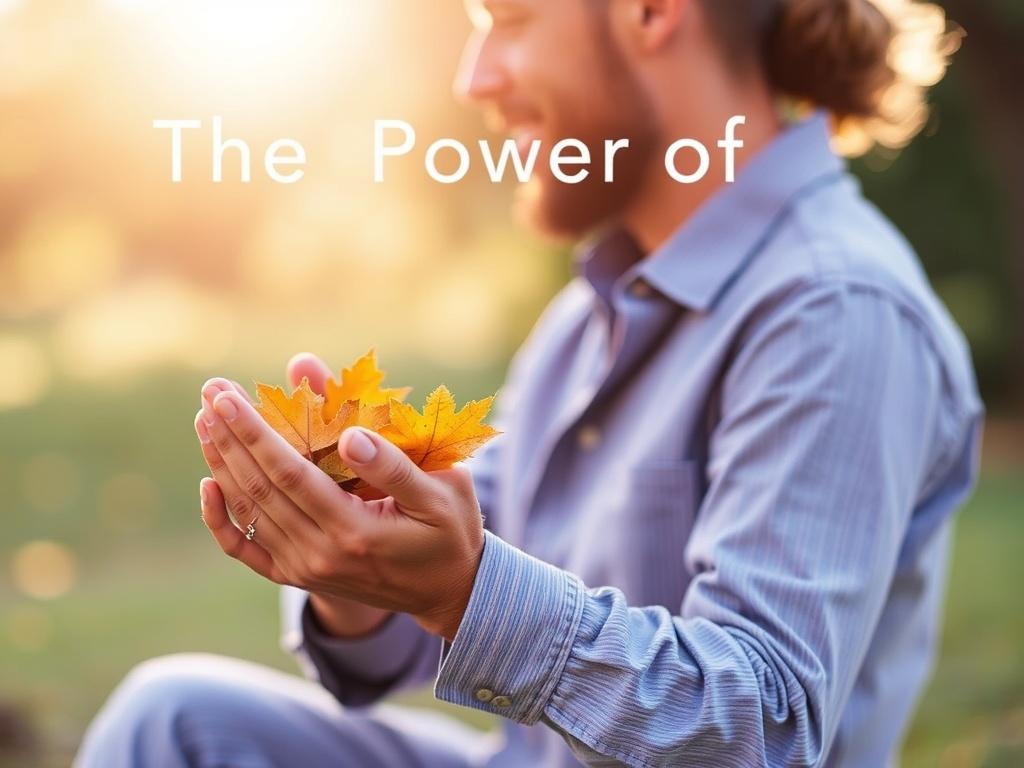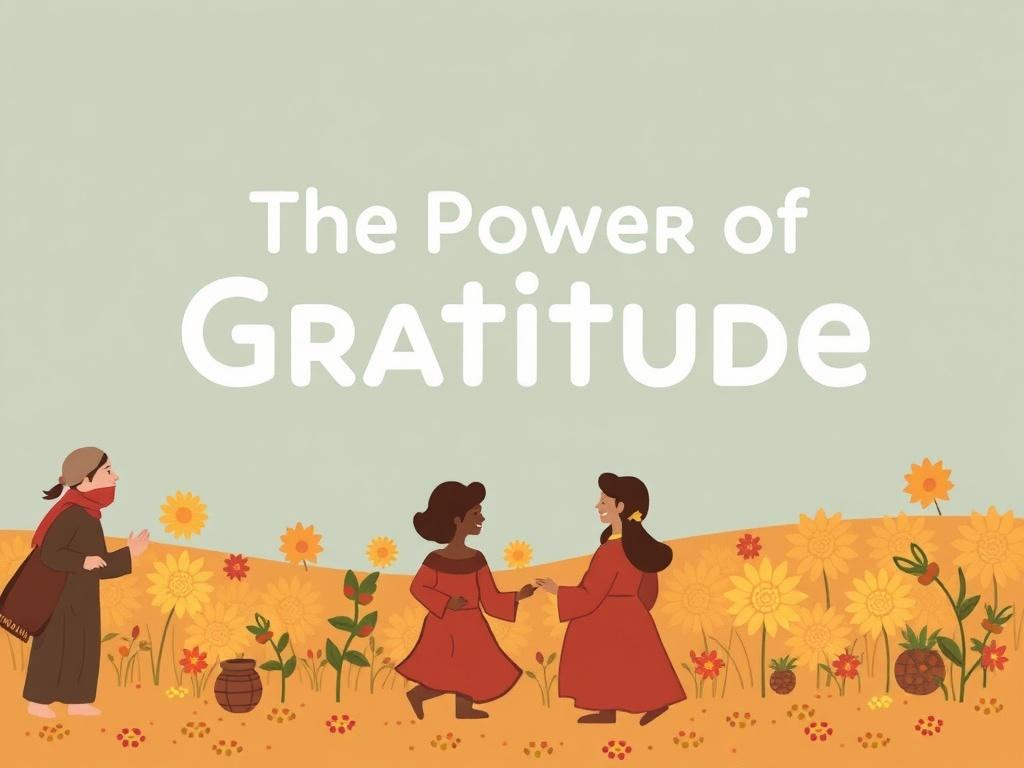Gratitude is a simple yet profound practice that has the power to completely transform your outlook on life. Imagine waking up each day feeling genuinely thankful, not just for the big things, but for the small, often overlooked moments that make life special. This shift in mindset doesn’t just improve your mood for a day—it can change your relationships, your health, and your overall happiness over the long term. In this article, we’re going to dive deep into the power of gratitude, exploring why it matters, how you can cultivate it, and the many surprising benefits that come with practicing gratitude regularly. Whether you’re new to the concept or have been trying it for years, there’s something here to inspire you. So, let’s get started!
What Exactly is Gratitude?
Gratitude is more than just saying “thank you.” It’s a heartfelt appreciation for what you have in life, whether it’s people, experiences, or even challenges that have taught you something valuable. When you feel gratitude, you acknowledge the positives in your life, regardless of how small or ordinary they might seem. This is important because life is often full of ups and downs, and focusing on the positive helps balance out the difficulties.
At its core, gratitude is about perspective. It’s a choice to see good things in your life, even when they are not obvious. This isn’t about ignoring problems or pretending everything is perfect. Instead, practicing gratitude means noticing the good alongside the bad and appreciating what you have, which shifts your emotional state toward hope and kindness.
Why Does Gratitude Matter?

You might wonder why gratitude has received so much attention recently, especially in the fields of psychology and wellness. It turns out, gratitude is linked with numerous benefits that make life better in tangible ways. Here are some of the key reasons gratitude matters:
- Improves mental health: Feeling grateful reduces stress, anxiety, and depression. It helps your brain focus on positive experiences rather than negative thoughts, which can boost your mood and resilience.
- Strengthens relationships: Expressing gratitude to others builds trust and deepens connections. People who feel appreciated are more likely to respond with kindness and support.
- Enhances physical well-being: Studies show that grateful people tend to take better care of themselves, sleep better, and experience fewer aches and pains.
- Boosts self-esteem: Gratitude helps you recognize your own worth and appreciate your achievements without comparing yourself to others.
- Increases overall happiness: Chronic appreciation rewires your brain to experience joy more easily and notice the beauty in everyday moments.
The Science Behind Gratitude
Over the past few decades, numerous studies have explored how gratitude affects the brain and body. Neuroscientists have found that practicing gratitude activates areas of the brain linked with dopamine production—the chemical responsible for feelings of pleasure and reward. This means that when you express thanks, your brain rewards you with feelings of happiness, reinforcing the behavior.
Moreover, gratitude has been linked to reduced levels of cortisol, the stress hormone, which means it can physically calm your body during stressful situations. Researchers have even found that keeping a gratitude journal over time can lead to long-lasting improvements in mood and well-being.
How to Practice Gratitude in Everyday Life
The great news is that gratitude is a skill you can develop and strengthen through consistent practice. You don’t have to be naturally optimistic or “positive” all the time to benefit from gratitude—it’s a habit anyone can build. Here are practical ways to infuse your daily life with gratitude:
| Practice | Description | Benefits |
|---|---|---|
| Gratitude Journal | Write down 3-5 things you are thankful for each day. | Focuses your mind on positives and builds a habit of appreciation. |
| Thank You Notes | Send handwritten or digital notes to people you appreciate. | Strengthens relationships and spreads positivity. |
| Mindful Appreciation | Take a moment each day to notice and savor simple pleasures. | Improves mindfulness and reduces stress. |
| Gratitude Meditation | Spend 5-10 minutes visualizing things you are thankful for. | Enhances emotional balance and relaxation. |
Tip: Keep It Specific and Authentic
When practicing gratitude, it’s important to be specific. Instead of writing “I’m grateful for my family,” try “I’m grateful for the way my sister called me yesterday to check in.” This precision helps you connect more deeply with your feelings and makes the practice more meaningful.
Also, avoid feeling pressured to be grateful for things you don’t truly feel thankful for. Authenticity is key. Sometimes, gratitude comes from recognizing small victories or positive moments even during tough times.
How Gratitude Can Improve Your Relationships

Relationships thrive on connection, appreciation, and mutual respect. Gratitude fuels these qualities in powerful ways. When you regularly express thankfulness to friends, family, colleagues, or partners, it nurtures warmth and trust.
Imagine this scenario: You thank a coworker for their help on a project. This small gesture can increase their motivation to collaborate in the future and creates a positive work atmosphere. Similarly, saying “thank you” to your partner for something they do shows you notice their efforts and value them, which strengthens emotional bonds.
Research shows that couples who express gratitude regularly report higher satisfaction and fewer conflicts. Gratitude encourages forgiveness and empathy, helping people move past disagreements with kindness.
Simple Ways to Express Gratitude in Relationships
- Verbally acknowledge acts of kindness, no matter how small.
- Write a note, text, or email telling someone why you appreciate them.
- Give compliments that focus on effort rather than just outcomes.
- Surprise loved ones with small tokens of appreciation.
- Listen actively and show interest in others’ lives as a form of gratitude.
The Role of Gratitude in Mental and Physical Health
A grateful mind supports a healthier body. The mind-body connection is powerful: our thoughts influence our physiological state. When you dwell on negative experiences, your body releases stress hormones that can suppress your immune system and contribute to illness over time. Conversely, gratitude reduces stress and creates space for healing.
Several studies link gratitude to better sleep. People who write gratitude lists before bed fall asleep faster and enjoy deeper rest. This improved sleep quality boosts energy, sharpens concentration, and enhances mood throughout the day.
Moreover, practicing gratitude encourages you to adopt healthier habits. Grateful people tend to exercise more, eat well, and avoid harmful behaviors like smoking or excessive drinking. This holistic wellness creates a virtuous cycle, making it easier to maintain a positive mindset and healthy lifestyle.
How Gratitude Helps Combat Anxiety and Depression
Anxiety and depression are often fueled by negative thought loops and feelings of hopelessness. Gratitude interrupts these cycles by redirecting focus to hopeful and positive aspects of life. Regular gratitude practice has been shown to reduce symptoms of both conditions.
Therapists sometimes recommend gratitude exercises as part of cognitive-behavioral therapy. Noticing and appreciating good things, no matter how small, creates mental pathways that counteract the pattern of negative rumination—a core feature in anxiety and depression.
Gratitude in Challenging Times: Finding Light in Darkness
It’s easy to feel grateful when everything is going well, but what about during tough times? Here lies the true power of gratitude—it can be a lifeline when life gets hard.
Practicing gratitude during adversity doesn’t mean ignoring pain or struggle. Instead, it’s about discovering glimmers of hope and strength amidst challenges. For instance, being grateful for the support of a friend, a moment of peace, or your own resilience can provide comfort and motivation.
Many people who have faced serious illnesses, loss, or economic hardships report that gratitude helped them rebuild their lives. It brought a renewed sense of purpose and a new appreciation for what truly matters.
Examples of Gratitude in Difficult Situations
- Recognizing the kindness of strangers or caregivers during illness.
- Appreciating small daily comforts, such as a warm cup of tea or a beautiful sunset.
- Feeling grateful for lessons learned through hardship that promote growth.
- Finding gratitude for personal strengths that helped you persevere.
- Celebrating even small improvements or milestones during recovery.
Gratitude in Different Cultures and Traditions

Gratitude is a universal concept celebrated in many cultures and spiritual traditions worldwide, each with its own unique expressions and rituals. Understanding these can broaden your appreciation and offer fresh ideas for your own gratitude practice.
Examples from Around the World
| Culture/Tradition | Gratitude Practice | Meaning and Significance |
|---|---|---|
| Native American | Thanksgiving Address, or «Words That Come Before All Else» | An expression of gratitude toward the natural world, acknowledging every living thing. |
| Buddhism | Meditations on gratitude toward teachers and life circumstances | Develops humility, compassion, and a sense of interconnection. |
| Christianity | Giving thanks in prayers and liturgies | Recognizes God’s blessings and grace in everyday life. |
| Japanese Culture | Seasonal festivals like «Oseibo» to give thanks | Honors relationships and expresses appreciation for support. |
| Islam | Regular recitations of gratitude in daily prayers | Emphasizes thankfulness as a key component of faith and contentment. |
How to Make Gratitude a Lasting Habit
Building a daily gratitude practice takes intention and consistency, but it doesn’t have to be complicated or time-consuming. Here are some tips to help make gratitude part of your lifestyle:
- Start small: Begin with just one thing you’re grateful for each day.
- Choose a routine: Tie gratitude practice to an existing habit, like brushing your teeth or having your morning coffee.
- Use reminders: Place sticky notes or phone alerts to prompt a gratitude moment.
- Share with others: Talk about what you’re grateful for during meals or gatherings.
- Reflect often: Review your gratitude journal regularly to notice your growth and the good in your life.
Remember, the goal is progress, not perfection. Some days will be easier than others, and that’s okay. The key is returning to gratitude whenever you can.
Common Challenges and How to Overcome Them
Many people struggle with gratitude because they feel overwhelmed, distracted, or skeptical about its benefits. Here are some ways to overcome common obstacles:
- Feeling “too busy”: Even a minute is enough to pause and appreciate something small.
- Negativity bias: Acknowledge your feelings first, then consciously add positive reflections.
- Comparing yourself to others: Remember that gratitude is personal—focus on your own journey.
- Noticing the “big” things only: Train yourself to find joy in simple moments and everyday blessings.
Gratitude and Success: Why Thankfulness Fuels Achievement
You might think success depends only on hard skills and effort, but gratitude can play a vital role in achieving goals. Grateful people tend to have stronger motivation, better focus, and a more positive attitude toward challenges.
Studies of high achievers often reveal a common habit: they maintain a sense of humility and appreciation, which prevents burnout and perfectionism. Gratitude helps maintain perspective, reminding you why you’re working hard and who supports you along the way.
In workplaces, teams that cultivate gratitude report higher morale, collaboration, and innovation. This makes gratitude not only a personal practice but a powerful organizational tool.
Ways to Integrate Gratitude Into Your Path to Success
- Set intention by acknowledging your progress and support network.
- Celebrate small wins with gratitude rather than rushing to the next goal.
- Express appreciation to mentors, colleagues, and others who help you grow.
- Use gratitude as a stress management tool during setbacks and failures.
Conclusion
The power of gratitude is truly transformative—it shapes not only how we feel but how we live, love, and succeed. By cultivating gratitude, you invite more joy, resilience, and connection into your life. Whether through simple daily practices, meaningful expressions toward others, or mindful appreciation even in tough times, gratitude rewires your brain to notice good and respond with kindness. It encourages healthier bodies, stronger relationships, and greater achievements. Most importantly, gratitude reminds us to cherish the journey itself, not just the destination. So why not start today? Take a moment, look around, and find one thing to be thankful for. That single act might just be the beginning of a happier, more fulfilled life.




















